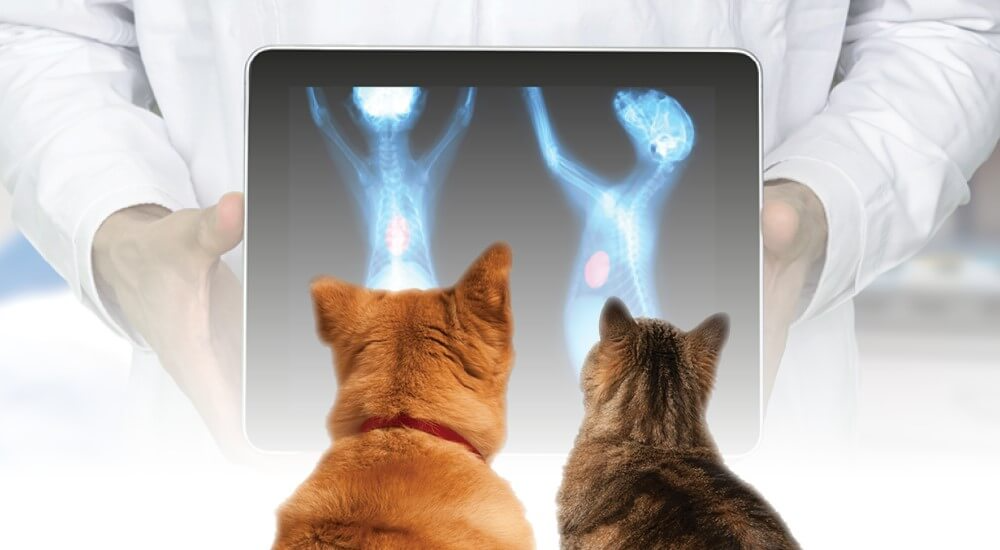As pet owners, we often think about the general well-being of our animals, including their diet, exercise, and routine vet visits. However, when it comes to heart health, many pet owners may not fully understand the importance of vet cardiology. Cardiac diseases are not only common in humans but also affect pets, particularly as they age. In this article, we will explore the role of vet cardiology in diagnosing and managing heart conditions in pets, helping you understand how to keep your furry friend’s heart healthy.
What is Vet Cardiology?
Vet cardiology refers to the branch of veterinary medicine that focuses on diagnosing, treating, and managing heart diseases in pets. Just like humans, animals can suffer from heart-related issues such as heart murmurs, arrhythmias, heart failure, and congenital heart defects. Vet cardiology is dedicated to using specialized techniques to assess the health of your pet’s heart and cardiovascular system.
While general veterinarians can detect common signs of heart issues, a vet cardiology specialist is equipped with advanced training and tools to provide in-depth analysis and treatment options for pets with heart conditions.
Common Heart Conditions in Pets
Pets, especially older dogs and cats, are prone to developing a variety of heart conditions. Here are some of the most common cardiac issues diagnosed by vet cardiology professionals:
1. Heart Murmurs
A heart murmur is an abnormal sound heard during a heartbeat, often caused by turbulent blood flow within the heart. While some murmurs are harmless, others can signal underlying heart conditions, such as valve disease or congenital defects. A vet cardiology specialist can help identify the cause of the murmur and determine whether it requires treatment.
2. Congestive Heart Failure (CHF)
CHF occurs when the heart is unable to pump blood effectively, leading to fluid buildup in the lungs or abdomen. This condition is common in older dogs and cats and can be caused by various factors, including valve disease or cardiomyopathy. Vet cardiology plays a key role in diagnosing CHF and providing appropriate treatments to manage symptoms and improve the pet’s quality of life.
3. Arrhythmias
Arrhythmias refer to abnormal heart rhythms that can cause the heart to beat too fast, too slow, or irregularly. This can interfere with the heart’s ability to pump blood efficiently, leading to a range of health problems. If your pet experiences symptoms such as fainting, lethargy, or weakness, a vet cardiology specialist can perform diagnostic tests to identify any arrhythmias and recommend treatment options.
4. Dilated Cardiomyopathy (DCM)
Dilated cardiomyopathy is a condition where the heart becomes enlarged and weakened, impairing its ability to pump blood. It’s more common in certain breeds, including Doberman Pinschers and Boxers. Early detection through vet cardiology can help manage the condition and prevent the onset of heart failure.
How Vet Cardiology Diagnoses Heart Conditions
Vet cardiology involves the use of several diagnostic tools to assess heart health. If your pet is showing signs of heart disease, your veterinarian may recommend seeing a cardiologist for further evaluation. Here are some of the diagnostic methods commonly used in vet cardiology:
1. Echocardiogram (Heart Ultrasound)
An echocardiogram uses sound waves to create images of the heart’s structure and function. This non-invasive procedure allows the cardiologist to assess the heart valves, chambers, and blood flow in real-time. It is one of the most effective ways to diagnose conditions such as heart murmurs, valve disease, and cardiomyopathy.
2. Electrocardiogram (ECG)
An ECG records the electrical activity of the heart and helps identify abnormal heart rhythms (arrhythmias). By placing electrodes on your pet’s chest, the cardiologist can monitor the heart’s electrical impulses and assess whether any irregularities exist.
3. Chest X-Rays
X-rays are commonly used in vet cardiology to evaluate the size and shape of the heart and check for signs of fluid buildup in the lungs or abdomen. This diagnostic tool is particularly helpful for identifying conditions like congestive heart failure or an enlarged heart.
4. Blood Pressure Measurement
Just like humans, pets can suffer from high blood pressure, which can damage the heart and organs over time. A vet cardiology specialist may measure your pet’s blood pressure as part of a comprehensive heart health assessment.
Treatment Options for Heart Conditions in Pets
Once a heart condition is diagnosed, your vet cardiology specialist will recommend a treatment plan based on the type and severity of the condition. Here are some common treatment options for pets with heart diseases:
1. Medications
For many heart conditions, medications are the first line of treatment. These can include diuretics (to remove excess fluid), ACE inhibitors (to help the heart pump more effectively), or antiarrhythmic drugs (to regulate heart rhythm). Your veterinarian will tailor the medication to your pet’s specific needs.
2. Surgery
In some cases, surgery may be required to treat heart defects or to repair damaged heart valves. Surgical options depend on the specific condition and the overall health of your pet.
3. Lifestyle Changes
Pets with heart disease may benefit from changes to their diet and exercise routine. Your vet cardiologist will provide recommendations on the best ways to manage your pet’s weight, encourage appropriate physical activity, and adjust their diet to reduce strain on the heart.
4. Ongoing Monitoring
Heart conditions often require ongoing monitoring to ensure that treatments are effective. Regular check-ups, including follow-up imaging and ECGs, can help track the progress of the condition and make adjustments to the treatment plan as needed.
Why Vet Cardiology is Essential for Your Pet’s Health
Regular veterinary check-ups are crucial for identifying potential heart issues before they become serious problems. Vet cardiology specialists play an essential role in diagnosing and managing heart diseases in pets, helping to improve their quality of life and extend their lifespan. By detecting heart conditions early, you can work closely with your vet cardiologist to ensure your pet receives the right treatment and care for their specific needs.
Conclusion
Heart disease in pets is a common yet often overlooked issue that can significantly impact your furry companion’s health and well-being. With the help of vet cardiology, conditions like heart murmurs, arrhythmias, and heart failure can be diagnosed early and managed effectively. Regular veterinary visits, diagnostic testing, and appropriate treatments can help ensure that your pet leads a happy, healthy life. If you notice any symptoms of heart disease in your pet, such as coughing, lethargy, or difficulty breathing, consult a vet cardiology specialist to provide your pet with the care they need.




